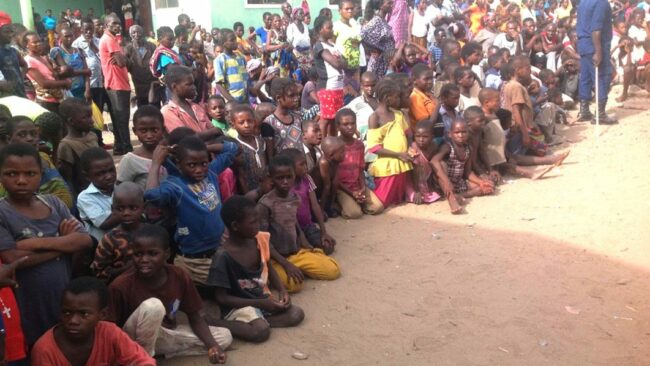The United Kingdom government is concerned and determined to continue to provide needed support to Nigeria in the effort to eliminate the challenge of out-of-school children in the country.
The UK Prime Minister’s Special Envoy for Girls Global Education, Helen Grant, stated this in Abuja when she led a delegation on a working visit to the Minister of State for Education, Dr Yusuf Sununu, where she advocated for the provision of access to quality education for girls in Nigeria.
She said her visit was to have a dialogue with the Minister about what more work “we can do together to make sure that Nigerian children have access to education,” saying the United Kingdom would continue to support Nigeria in the bid to eradicate the challenge of a high number of school-age children who are not in school.
“My role as the UK Prime Minister’s Special Envoy for Girls’ Global Education is to globally champion his message that providing every girl on the planet with 12 years of quality education is one of the best ways of tackling many of the problems facing the world today, such as poverty, climate change, and inequality.
“Investing in girls’ education is a game changer. If we want to change the world for the better, girls’ education is a great place to start,” she said.
She appealed to the Nigerian government to ensure that education is not only prioritised but that access to quality education is provided for girls as well as economic empowerment.
The Minister of State for Education, Dr Sununu, commended the UK for various interventions through her agencies, noting that education is an exportable service that no government could do alone, hence the need for national and international collaboration.
He informed his visitors that the current administration is exploring multi-prong approaches to tackling the challenges of out-of-school children in the country.
According to him, one of the things the government has done is establish the National Commission for Almajiri and Out-of-School Children’s Education, which took off a few days ago. He says the law establishing it was passed by the National Assembly and assented to by Mr. President.
“The main role of the Commission is how we can mop up children out of the streets, put them in school, sustain them in school; we are talking about enrolment, retention, and completion, and at least get them up to tertiary level. We will also arm them with the necessary skills through vocational training,” he said.
Sununu admitted that Nigeria is backward as far as girl’s education is concerned, noting however that this has been prioritised and listed as one of the key thematic areas of the Ministerial roadmap for the development of the education sector.
“All of us know the value of a girl child; when you educate a girl, you are educating society; you are educating an individual. This is because the girl is going to be a mother, a sister, a wife, and a grandmother. The chain is so expanding that we can’t afford to neglect girl-child education.
“We talked generally in terms of collaboration and have also agreed that to address the problems of education in Nigeria, we must focus on out-of-school children, whether Almajiri or not, because, as I keep on saying, it constitutes a timed bomb if nothing is done to address it,” the Minister said.
He also spoke on the recently approved guidelines for the provision of second chance education for girls, explaining that a girl who, for one reason or another, could not complete their education now has the opportunity, if so, to complete the programme at whatever level.
“Some girls could not complete school for so many reasons, including early marriage; some might be displacement or poverty; but once a girl child in Nigeria decided that she wanted to get back to school, we developed a guideline on where to place her appropriately and for her to be given special attention so that she can renew her potential and meet the target of her choice.
“The guideline has been adopted by the National Council on Education and has been circulated to all the states of the federation so that we can give them the chance to learn and learn more,” he said.
ALSO READ THESE TOP STORIES FROM NIGERIAN TRIBUNE
